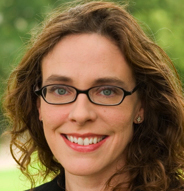Thirty Years of German Unity
AGI ProjectEpisode 02: The Wall: Legacy of Divided Berlin
When the Berlin Wall fell on November 9, 1989, it was a surprise to many. For an entire generation, the Berlin Wall was the most iconic physical manifestation of the …
German Unification and European Security
How has German unity impacted the U.S. in terms of its policies and its expectations of Germany as part of that evolving Europe in which it has become so critically important? How have the following years impacted the shaping of U.S. foreign policy, its goals, and its application? What expectations emerged about the global role of the U.S. and our expectations of a unified Germany? The questions above are the ones on which AICGS has asked commentators in this series to reflect upon as the 25th anniversary of the unification of Germany approaches on October 3. They are all significant questions but, given the space constraints, I would like to limit this brief comment to one particular aspect on which I have some modest expertise: the extensive overlap between the process that yielded German unification and the process that yielded expansion of the North Atlantic Treaty Organization (NATO).





